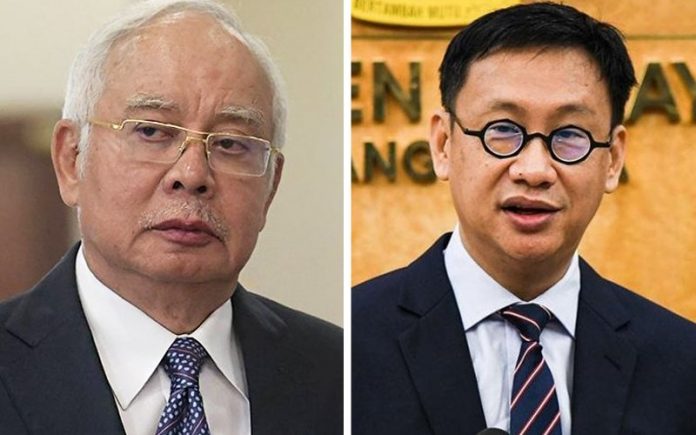
PETALING JAYA: Former prime minister Najib Razak says there is no need for the Employees’ Provident Fund (EPF) to raise or borrow additional funds to facilitate withdrawals for contributors.
In a Facebook post, Najib responded to PKR’s Subang MP Wong Chen, who had urged the finance ministry to scale back on eligibility for withdrawals from the EPF as he doesn’t believe the fund can afford it.
Wong Chen had voiced his concerns after Finance Minister Tengku Zafrul Aziz said eight million EPF contributors would be able to withdraw up to RM10,000 each – a total of RM70 billion – in 2021 from their savings.
Najib said under the law, at least 50% of EPF assets must be in the form of government securities or bonds, though this limit can be relaxed subject to the finance minister’s approval.
“Therefore, 50% of EPF’s assets of around RM940 billion are currently in this liquid form. The outfall of RM70 billion is just 7.4% of EPF’s total asset size.”
The yields from government bonds, Najib said, are typically lower than EPF’s yearly dividends. So, liquidating them will not result in lower dividends as the fund would not need to liquidate assets which yielded higher returns, like equities, direct ownership in companies and properties.
To meet the cash flow needs of the estimated RM70 billion in EPF withdrawals, Najib said the retirement fund only needed to liquidate its government bonds into the secondary market where there are ready buyers.
“Alternatively, I have also suggested that EPF sell bonds to Bank Negara Malaysia (BNM) in order to minimise the impact on our secondary bond markets and prevent any sudden spike in yields.”
Najib said when BNM buys bonds, new money is created and injected into the economy, and this is a form of quantitative easing which many countries do.
“In fact, at the end of September, BNM had purchased RM9 billion worth of government bonds.
“There is little risk of inflation with BNM practising quantitative easing right now as we are now in a deflation environment as Malaysia has registered negative inflation throughout this year due to collapsing demand and oil prices arising from the Covid-19 crisis.”



